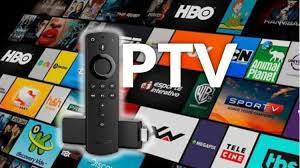The television landscape has undergone a significant transformation in recent years, abonnement iptv moving away from traditional broadcasting methods towards more innovative and flexible viewing options. One of the leading technologies driving this change is Internet Protocol Television (IPTV). IPTV is revolutionizing the way we consume television content by leveraging the power of the internet. This article delves into what IPTV is, how it works, its benefits, and its potential future impact.
What is IPTV?
IPTV stands for Internet Protocol Television, a system where television services are delivered using the internet protocol suite over a packet-switched network such as the internet, instead of being delivered through traditional terrestrial, satellite signal, and cable television formats. This means that television programs are transmitted via the internet, providing viewers with a more versatile and customizable viewing experience.
How Does IPTV Work?
IPTV works by transmitting video content over the internet in the form of data packets. Here’s a simplified breakdown of the process:
- Content Acquisition: Content can be sourced from live television channels, video on demand (VoD) libraries, or even user-generated content.
- Encoding and Compression: The video content is encoded and compressed to ensure efficient transmission over the internet without compromising quality.
- Content Delivery Network (CDN): The compressed data is then sent to a CDN, which helps distribute the content across various servers worldwide, ensuring fast and reliable access.
- Set-Top Box or App: Users access IPTV services via a set-top box connected to their TV or through an app on their smart TV, smartphone, or computer.
- Viewing Experience: Once the data packets reach the user’s device, they are decoded and displayed as high-quality video content.
Types of IPTV Services
IPTV services can be categorized into three main types:
- Live Television: Streaming live TV channels over the internet, similar to traditional broadcasting but with the added advantage of interactivity and additional features.
- Time-Shifted TV: This service allows users to watch previously broadcasted content at their convenience, often referred to as catch-up TV.
- Video on Demand (VoD): Users can select and watch any video content from a vast library, giving them complete control over what they watch and when they watch it.
Benefits of IPTV
IPTV offers numerous advantages over traditional television broadcasting methods:
- Flexibility: Users can watch content on various devices, including smartphones, tablets, and smart TVs, providing a seamless viewing experience.
- Interactivity: IPTV allows for interactive features such as pausing, rewinding, and recording live TV, enhancing user engagement and control.
- Customization: IPTV platforms often offer personalized content recommendations based on user preferences and viewing history.
- On-Demand Content: With VoD services, users have access to a vast library of content that they can watch at any time, eliminating the need to adhere to broadcasting schedules.
- Cost-Effective: IPTV can be more affordable than traditional cable or satellite TV, especially with the rise of competitive streaming service providers.
Challenges and Considerations
While IPTV offers numerous benefits, there are also some challenges and considerations to keep in mind:
- Internet Dependency: A stable and high-speed internet connection is essential for a smooth IPTV experience. Poor connectivity can lead to buffering and reduced video quality.
- Content Licensing: Ensuring the legality of content distribution and adhering to licensing agreements can be complex and challenging for IPTV providers.
- Security and Privacy: Protecting user data and ensuring secure transmission of content is critical to prevent unauthorized access and piracy.
The Future of IPTV
The future of IPTV looks promising, with continuous advancements in technology and increasing consumer demand for flexible and personalized viewing experiences. Key trends that are likely to shape the future of IPTV include:
- Integration with Smart Home Devices: IPTV services may become more integrated with smart home ecosystems, allowing for seamless control and enhanced interactivity.
- Enhanced User Experience: Artificial intelligence (AI) and machine learning (ML) algorithms will further improve content recommendations and personalization.
- 5G Technology: The rollout of 5G networks will significantly enhance the speed and reliability of IPTV services, providing ultra-high-definition (UHD) streaming and low-latency experiences.
- Interactive and Immersive Content: Augmented reality (AR) and virtual reality (VR) technologies may be incorporated into IPTV services, offering viewers more immersive and interactive content experiences.
Casgliad
IPTV represents a significant shift in the way television content is delivered and consumed. Its flexibility, interactivity, and on-demand nature make it an attractive alternative to traditional broadcasting methods. Wrth i dechnoleg barhau i esblygu, IPTV is poised to become an even more integral part of the modern media landscape, offering viewers a richer and more personalized television experience.

